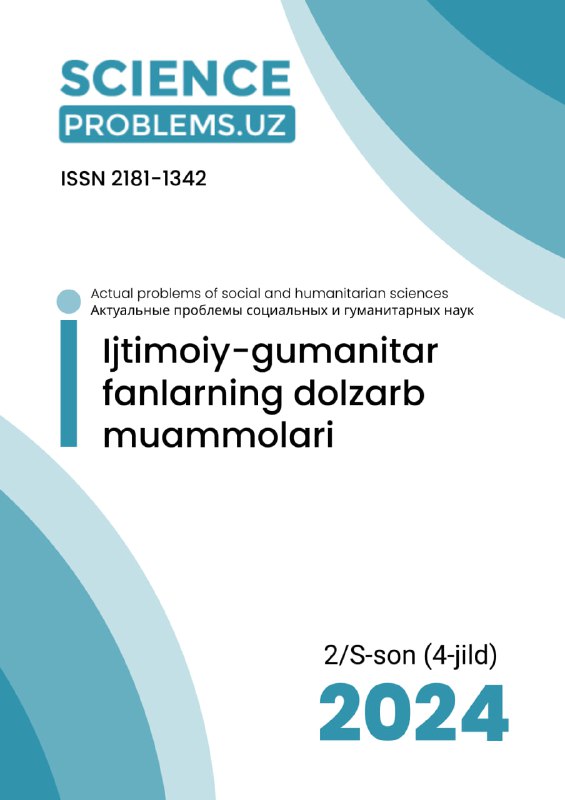LEGAL ASPECTS OF IMPLEMENTING THE KYOTO CONVENTION IN UZBEKISTAN’S CUSTOMS ACTIVITY AND IMPLICATIONS FOR WTO ACCESSION
DOI:
https://doi.org/10.47390/SPR1342V4SI2Y2024N41Keywords:
Customs reform, Kyoto Convention, international standards, digital customs, WTO membership, economic integration, legal harmonization.Abstract
In this article, the legal significance of the revised Kyoto Convention in the modernization of the customs procedures of Uzbekistan was analyzed. The issues of compliance of customs procedures with Convention standards, trade facilitation, efficiency, preservation of freedom, and a positive solution to the WTO membership process were discussed. The current customs legislation framework of Uzbekistan was reviewed, the necessary directions for compliance were determined, and the impact of implementation and WTO membership was studied. In the process of analysis, legal texts, international agreements, and literature were relied upon.
References
Aliev, S. (2018). Customs modernization in Uzbekistan: Challenges and opportunities. World Customs Journal, 12(2), 3-16.
World Customs Organization. (2018). The revised Kyoto Convention: A pathway to modern customs. Brussels, Belgium: World Customs Organization.
World Trade Organization. (n.d.). Trade facilitation agreement. Retrieved from https://www.wto.org/english/tratop_e/tradfa_e/tradfa_e.htm
World Bank. (2005). Customs modernization handbook. Washington, DC: World Bank.
Widdowson, D. (2007). The changing role of customs: Evolution or revolution? World Customs Journal, 1(1), 31-37.
Widdowson, D. (2005). The changing role of customs: Evolution or revolution? World Customs Journal, 1(1), 31-37.
World Customs Organization. (2007). WCO SAFE framework of standards to secure and facilitate global trade. Brussels, Belgium: World Customs Organization.
Moïsé, E. (2005). Trade facilitation reforms in the service of development. In OECD, Overcoming border bottlenecks: The costs and benefits of trade facilitation (pp. 113-138). Paris, France: OECD Publishing.
World Bank. (2009). Doing business 2010: Reforming through difficult times. Washington, DC: World Bank.
Yasui, T. (2010). Benefits of the revised Kyoto Convention. World Customs Journal, 4(1), 73-85.
Finger, J. M. (2008). Trade facilitation: The role of a WTO agreement. In D. Brooks & S. Stone (Eds.), Trade facilitation and regional cooperation in Asia (pp. 13-39). Cheltenham, United Kingdom: Edward Elgar Publishing.
World Customs Organization. (2007). WCO SAFE framework of standards to secure and facilitate global trade. Brussels, Belgium: World Customs Organization.
World Trade Organization. (n.d.). Trade facilitation agreement. Retrieved from https://www.wto.org/english/tratop_e/tradfa_e/tradfa_e.htm
Yasui, T. (2014). Trade facilitation in the multilateral trading system: Genesis, course and accord. In R. Meléndez-Ortiz, C. Bellmann, & M. A. Mendoza (Eds.), The future and the WTO: Confronting the challenges (pp. 157-173). Geneva, Switzerland: International Centre for Trade and Sustainable Development.
United Nations Economic Commission for Europe. (2012). Trade facilitation implementation guide. Geneva, Switzerland: United Nations Economic Commission for Europe.
Doanh, N. K., & Kee, P. V. (2007). Vietnam's accession to the WTO: The process and issues. In D. Hoa & C. Harvie (Eds.), Vietnam's economic transition: Policies, issues and prospects (pp. 63-82). London, United Kingdom: Palgrave Macmillan.
Chornyi, V., Nerushay, M., & Crawford, J.-A. (2016). A survey of customs administration approaches to money laundering. World Customs Journal, 10(1), 3-26.
Sherov-Ignatev, V. G. (2013). The role of the WTO in the regulation of world trade in goods. World Economy and International Relations, 57(8), 48-57.
Balás, P., & Moisé, E. (2014). Trade facilitation and the WTO: The development dimension. In R. Meléndez-Ortiz, C. Bellmann, & M. A. Mendoza (Eds.), The future and the WTO: Confronting the challenges (pp. 141-156). Geneva, Switzerland: International Centre for Trade and Sustainable Development.
Vakulchuk, R. (2014). Kazakhstan's emerging economy: Between state and market. Frankfurt am Main, Germany: Peter Lang.
Asian Development Bank. (2018). Regional cooperation on customs modernization in Central Asia. Manila, Philippines: Asian Development Bank.








